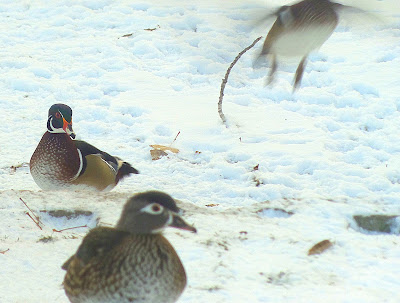This is a photo of my father and five of his seven children.
I am the oldest; I am not in this photo.
My baby sister, Marjory Ann (for my father's mother)
was not yet born when this photo was taken.
The whole family drove west in 1947 to be sealed in the Temple
and to visit the Western relatives and attend the celebrations
for the Centennial of the Mormon entry into Salt Lake Valley in 1847.
My brothers wore these outfits. which my mother sewed for them
and called clamdiggers, They had them in white corduroy (for the temple)
and in yellow and peach chambrays
as well as in blue and white stripes. Robert was still in diapers,
and David often should have been,
I remember having to change all four outfits (so they would match)
when he dirtied his on the trip.
The boys were born between 1941 and 1945.
Robert had his arm on a cast during the trip,
so this was taken before we went, I think, Or after? But 1947. . .
My sister Susan (named for my mother's mother) and who just died this year,
is here in a striped shirt, with her sweet smile...
And I am probably off somewhere in a tree, reading a book.
My father was an engineer for General Electric;
he always wore a suit to work--with a white shirt and a tie.
He didn't have sport shirts or tee shirts;
the white shirts went through phases. This is
a picture of Phase Two. The shirt is still nice and ironed,
but the sleeves have been cut off and rolled.
It is worn as a sport shirt, with the top button sometimes left unbuttoned.
Later the collar and even the sleeves will be torn off
and the shirt will be worn for rough work.
Lastly, my favorite thing about this photo
is that the whiteness of the shirt was too intense for the film
and gives it a celestial glow, which moves out into the air
around my father.
CATHEDRAL
(the final section)
To read again
by the lights of the city
lights
reflected in the windows of the past
a stone wall
towering above the river
morning star
or evening star
the many facets
facing west
solid with
pink but fading light
to read again, unmoored
as if inside the blackbird's song
clear
unadorned
while overhead
the sky begins to darken
not quite swallowing
the city
and some other life begins
to read that is
although with difficulty
in that fading light
the names of rivers
faces other cities
stone walls that may yet be to be found
strung out along the river
on its short course to the sea
--Durham, 2007, along the River Wear
Roo Borson
Rain, road, an open boat; poems by Roo Borson;
winner of the Griffin Poetry Prize, McClelland and Stewart,
Ontario, Canada, 2012, pages 75-77.
(This is the final poem in the book.)
I think this is a poem about memory. Roo Borson
is one of my favorite poets; I have talked about
her work in two other posts on this blog. This poem has
very short stanzas and a location note, but is not limited
to a single chain of thought. It functions by accretion
in a very poetic manner. It "contains multitudes" like the
work of Walt Whitman, but in a quieter way.
So your task is to locate yourself in a place or on a journey
and assemble the poem from shards, fragments and
frangrances of your own memories and cultural memories.
Good night. jhh





















